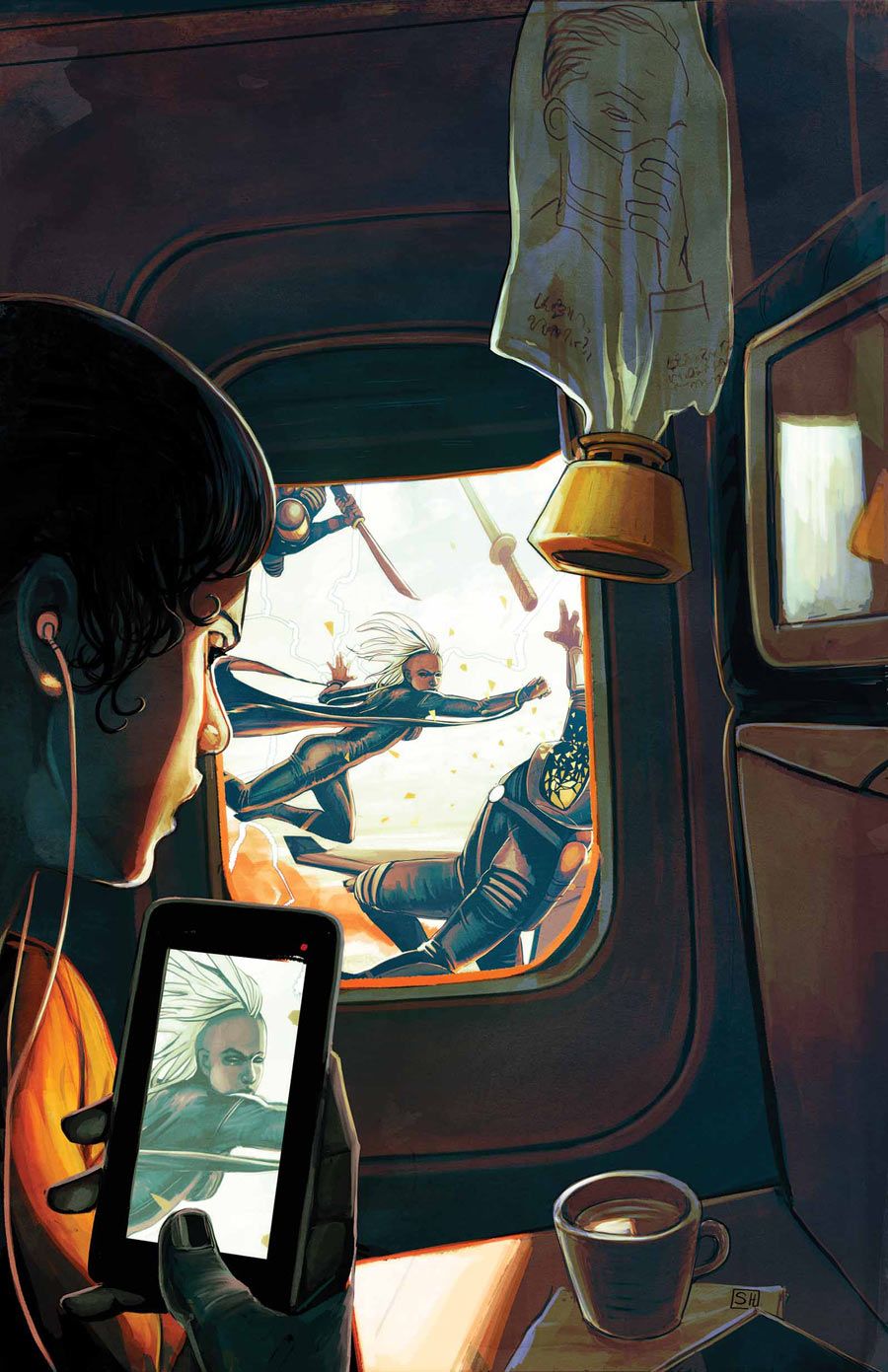When Ororo pledged to repay Wolverine's debts, she had some idea that she probably would encounter her late lover at his worst; what she didn't bargain for, however, was participating in a fight to the death on behalf of Yukio's gang. Injured in body and pride, she takes the next flight out for home, only to land in more trouble than she could ever have imagined. Like the Wind Rider herself, Greg Pak, Al Barrionuevo, and Tom Palmer's "Storm" #6 follows a clear trajectory with a tense, action-packed build and gripping conclusion.
As has been the case with the rest of the series so far, Pak puts Storm into another situation that she can't punch her way out of. Sure, there's punching involved, but that ends up being the least of her problems in this wonderfully constructed commentary. That is, the issue is frustrating for all the right reasons: the consequences of Yukio's trickery, the blatant discrimination, the unrecognized acts of heroism, the skeevy politician... It's designed to prompt righteous rage, and it does so through its effective use of dramatic irony, in that it follows some establishing issues that fleshed out her character so well. It stings to see Ororo treated this way after the other installments stressed her good nature and strong moral compass, particularly as all these smaller incidents against her escalate for the final outrage. "Storm" #6 has a clear message, and Pak executes that with an even, balanced hand.
That isn't to say, of course, that the issue is bogged down with overbearing sermons. On the contrary, for all the frustrations Storm must deal with, Pak gives her plenty of agency and plenty to do. From aerial battles to spectacular feats of willpower to interacting with bigots, Ororo exercises incredible patience and control; her ability to weather the indecencies sent her way organically works into the plot through this, as she choses to save and protect rather than to destroy. Her strength comes in all different sizes here and that adds great nuance to the character. In proxy, the other characters become instantly likeable or despicable based on the way they react to her inconspicuous but unapologetic presence.
When I first picked up the issue, Barrionuevo's artwork reminded me of Ibanez's so strongly that I found myself paging back to the credits page just to reconfirm that it wasn't, in fact, his. With Tom Palmer's thick, rough inks on Barrionuevo's pencils, the difference between the two styles is slight, which helps maintain the feeling of continuity between the issues. Barrionuevo follows Ibanez easily with similarly strong figure work. For all that we get glimpses into Storm's aches with panels focused on her broken ribs and ankles, her body language maintains her stubborn and angry demeanor as she reflects on Yukio's betrayal and the unsavory attitudes of her fellow passengers. Barrionuevo convincingly portrays her restraint as the Senator's bodyguards confront her; the fury on her face, coupled with Pak's danger-filled narration, truly nails down the force with which she controls herself in the face of adversity. Likewise, he carries the action well with excellent staging for the midflight battle between Storm, Yukio's rival gang, and the stalled out plane. However, he tends to lose details as the perspective pulls back for wider shots, which dramatically decreases the impact of his facial expressions that are otherwise so very effective. As with her work on previous issues, Ruth Redmond keeps Storm grounded with attention to realism, borrowing from an earthy palette for the duration of the story.
Fresh off the aftermath of Logan's death, "Storm" confidently strides out with its own voice intact thanks to Greg Pak, Al Barrionuevo, and Tom Palmer. With a clear new direction, "Storm" #6 is a strong issue that utilizes a subtly layered conflict to great effect.

